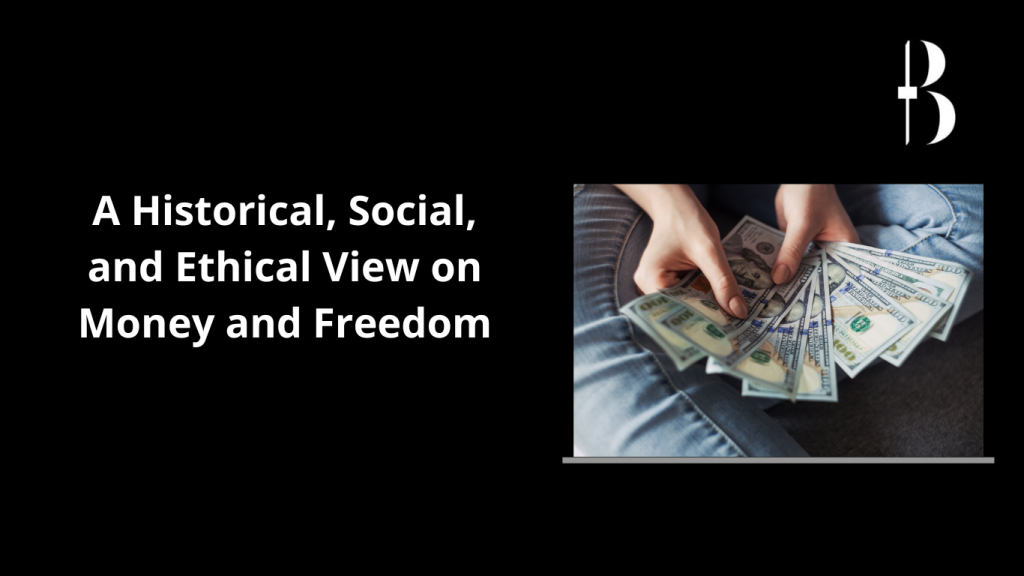Introduction
Two ideas that have influenced nations throughout history are money and freedom. We shall go into the historical, sociological, and ethical aspects of the complex link between wealth and freedom in this post. We seek a greater understanding of the complex processes at work in our contemporary world by investigating how the concept of money has altered freedom.
Historical Overview
We must examine each concept’s historical development in order to understand how money and freedom are related. Money has been a method of exchange, supporting economic activities and commerce, since the earliest civilizations. However, the control of resources and the accumulation of riches have frequently led to power disparities and social inequalities, which have limited individual freedom.
Economic structures and ideologies have influenced income distribution and, in turn, the degree of personal freedom throughout history. Different economic systems, such as feudalism, capitalism, and socialism, have offered differing levels of financial and personal autonomy. Although it has also been criticized for worsening social inequities, the rise of capitalism in the modern age has highlighted the significance of personal wealth accumulation and economic independence.
Social Consideration
Beyond economic systems, money has an impact on freedom that permeates societal structures and institutions. The ability of people to pursue their goals is directly impacted by economic differences, which also have a significant effect on access to opportunities for education and healthcare. People from underprivileged backgrounds confront considerable impediments to social mobility and may feel imprisoned in cycles of poverty in countries with large wealth differences.
Additionally, the commercialization of necessary commodities and services may limit human liberties. Individuals without financial resources may be robbed of their fundamental rights, causing social discontent and marginalization, when essential requirements are only available to those who can afford them.
Ethical Viewpoint
The moral ramifications of financial power are crucial issues that are raised by an ethical analysis of money and freedom. The idea of fairness and equal opportunity in society is put to the test by wealth discrepancies. It makes us pause to consider our obligations to one another and the moral limits of accumulating wealth.
In addition, the quest for money can occasionally result in moral conundrums such as unethical behavior, corruption, and putting one’s own interests ahead of those of the group. Total freedom and well-being can be best achieved by distributing money according to ethical theories like distributive justice or utilitarianism.
Conclusion
- Freedom and money are intimately linked, with money frequently acting as a liberty’ spark or impediment.
- To address the issues and potential injustices brought on by wealth disparities, it is essential to comprehend the historical, social, and ethical facets of this relationship.
- We can work toward a more fair society where financial resources are disbursed responsibly, encouraging the actual freedom and well-being of all individuals, by critically studying the relationship between money and freedom.

